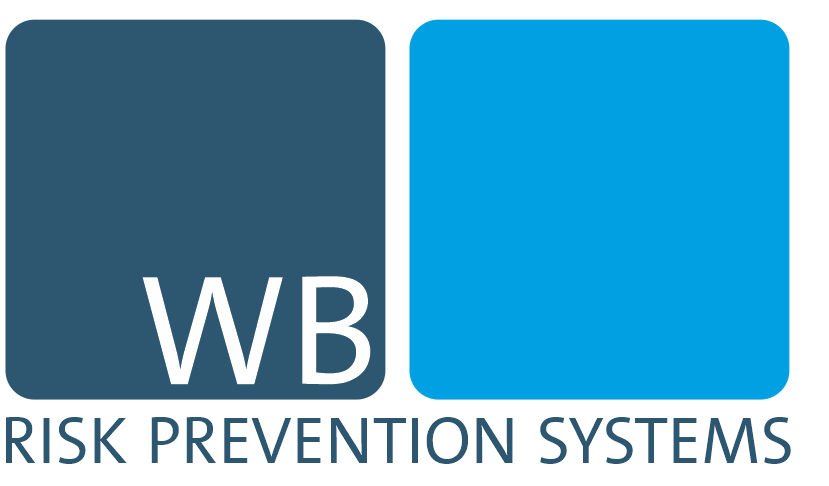Wie entwickelt man sich in einem korrupten Umfeld? Paul Labic ist Spezialist für Korruption und den Schutz von Unternehmen und deren Teams. Als Berater und Akademiker nähert sich der gebürtige Franzose Risiken von zwei Seiten.
Sie haben mehr als 20 Jahre in der internationalen Automobilindustrie in diversen Managementpositionen Karriere gemacht. Wie kam es zu Ihrer Spezialisierung auf die Bekämpfung von Korruption und Risiken im feindlichen Umfeld?
Paul Labic: Im Laufe meiner Karriere war ich mit vielen Krisen konfrontiert, angefangen von Überschwemmungen über Brände bis hin zu Rechts- oder Gewährleistungsfragen. Als ich vor etwa fünfzehn Jahren Direktor für Vertrieb und Programme in Asien war, war die Entdeckung der Korruption für mich ein Blitz in der Nacht. Mir wurde klar, dass viele Unternehmen und Führungskräfte wie ich Schwierigkeiten hatten, Alternativen zu entwickeln, die Ethik und Gesetze respektieren. Es wurde ab 2016 mein Forschungsgegenstand an der Universität und bald darauf mein Beruf.
..ein Thema, das für die Industrie immer wichtiger wird…
Labic: Ja, Korruption ist, wie alle Formen der Kriminalität, diskret. Das allgemeine Gefühl in Deutschland oder Frankreich, dass wir trotz der Zunahme der Skandale in unseren Ländern wenig betroffen sind, sagt nichts über die Realität der Schwierigkeiten vieler Industrieunternehmen aus. Diese Ignoranz führt dazu, dass viele Unternehmen nicht mehr Vorkehrungen treffen, um in gefährdeten Ländern ein Unternehmen zu gründen, als in einfacheren Umgebungen. Vergessen Sie auch nicht die besondere Situation deutscher KMU, die glauben, dass die Exzellenz ihrer Produkte sie vor den Feindseligkeiten dieser neuen Märkte schützt. Gewohnt, mit einem lokalen Netzwerk von Banken, Versicherungen oder Beratern zusammenzuarbeiten, die sich auch nicht mit der Realität der Korruption auskennen, finden sie sich plötzlich allein im Ausland wieder. Wenn sie nach einiger Zeit Bestechungsgelder zahlen müssen, ist es zu spät. Das Unwissen, die mangelnde Vorbereitung und die teils gewisse naive Leichtfertigkeit werden bar bezahlt.
Wie können Sie mit dem WB Risk Prevention Systems Team die Unternehmen im Vorfeld vor Korruption unterstützen, damit Ihre Kunden nicht später böse Überraschungen erleben?
Labic: Vorbereitung ist alles und umfasst mehrere Aspekte. Wir geben unseren Kunden eine genaue Vorstellung von dieser neuen Umgebung, die bis hin zum individuellen Profil ihrer zukünftigen Kunden, Lieferanten oder Partner gehen kann. Wir bieten verlässliche Kontakte und zeigen, warum sie es sind. Wir bieten ein, oft bi-nationales, Netzwerk von Experten und Beratern (Anwälte, Banken usw.) an, die unsere Kunden in Übereinstimmung mit Ethik und Recht unterstützen können. Wir begleiten unsere Auftraggeber bei der Einrichtung von Tools zur Analyse und Überwachung der Umgebung mit dem Ziel, sie autonom zu machen. Unser Ansatz hängt vom Grad der Risikoexposition ab. Oft zu spät gerufen, sind wir mit einer Krisensituation konfrontiert und müssen zunächst Risiken bewältigen, bevor wir präventiv tätig werden können. Einigen Klienten fällt es auch schwer einzusehen, dass eine erfolgreiche und nachhaltige Entwicklung Zeit braucht.
Die Krisen im Zusammenhang mit Korruption belasten mich persönlich am meisten, weil sie manchmal schwerwiegende Folgen für unsere Kunden haben, insbesondere in finanzieller Hinsicht und auch deren Ruf schädigen können.
Welche Eigenschaften zeichnen einen erfolgreichen Krisenmanager im Bereich der Korruption aus?
Labic: Ausdauer. Wenn ein Kunde zu ihnen kommt und sagt, dass er seit sechs Monaten Bestechungsgelder zahlt und das künftig nicht mehr will, kann es Jahre dauern, Alternativen aufzubauen. Es ist viel einfacher, wenn es noch keinen Kontakt gab.
Welche ethische und legale Alternative wäre zum Beispiel denkbar?
Labic: Um eine Alternative zur Korruption zu entwickeln, müssen wir verstehen, wie sie funktioniert: Es ist ein Wertfluss, der eine zusätzliche Vergütung für den Korrupten oder sein Netzwerk schafft. Wie kann man dann diesen Wertfluss in Übereinstimmung mit Ethik und Gesetz aufrechterhalten? Wenn es uns gelingt, eine Aktivität zu identifizieren, die den gleichen, aber legalen Wertfluss ermöglicht – beispielsweise eine Importaktivität nach Europa – können wir eine Alternative zu Korruption bieten. Dieser Ansatz ist nicht neu. Denken wir zum Beispiel an die Offsets bei Verträgen in den Bereichen Luftfahrt und Verteidigung.
Noch komplizierter wird es, wenn das Kind schon in den Brunnen gefallen ist und man Feuerwehr spielen muss.
Labic: Ein Beispiel aus der Zeit bei einem meiner früheren Arbeitgeber: Ein Produzent von Windturbinen lieferte Komponenten nach Indonesien, wo diese zusammengebaut und auf den zahlreichen kleinen Inseln auf Betonpfeilern installiert wurden. Nach einem Jahr stellte sich heraus, dass die europäischen Projektmanager, allein und ohne alternative Lösung Bestechungsgeld an die Hand genommen hatten, um vor Ort die Turbinen von den Häfen, durch die Dörfer usw. transportieren zu dürfen. Wir haben die Verträge dann so neu verhandelt, dass der Produzent nur noch die Turbinen lieferte und der lokale Partner alle weiteren Aufgaben übernahm. Diese Lösung war ein schlechter Kompromiss. Damit ist der Kunde nicht mehr direkt involviert. Er ist aber in Indonesien verbrannt. Sein Ruf ist in Asien und global auf Dauer gefährdet.
Was hat Sie motiviert, Ihre langjährige Expertise als Partner bei WB Risk Prevention Systems einzubringen?
Labic: Wir sind ein Team, in dem jeder Erfahrungen mit Krisen einbringt. Wir haben in den unterschiedlichsten Regionen gelebt und für diverse Branchen gearbeitet. Im Idealfall sind wir in der Lage, die Krise vorhersehen und verhindern zu können. Es gibt zahlreiche Analyse-, Antizipations- und Präventions-Werkzeugen, von denen jeder von uns viele beherrscht. Wir sind auch in Netzwerke involviert und können Experten, die bestimmte Länder oder Industrien verstehen, zu unserer Kern-Gruppe hinzufügen.
Sie nähern sich dem Thema Anti-Korruption auch wissenschaftlich, haben jüngst zwei Masterabschlüsse gemacht und werden im kommenden Jahr ihren Doktortitel an der Universität Straßburg erwerben. Was bedeutet die Theorie für die Praxis?
Labic: In meiner Doktorarbeit beschäftige ich mich mit Analyse-, Antizipations- und Präventions-Werkzeugen für die Bekämpfung der Korruption, also sehr praxisbezogenen Themen. Außerdem bin ich seit 2016 Mitglied des BETA Labors in Straßburg, das sich mit theoretischer und angewandter Wirtschaft beschäftigt. Die Menschen, die die Wirtschaft, die Länder der Welt oder bestimmte Industrien am besten kennen, sind Akademiker. Dieses Know-how nutzt man viel zu wenig. Ein gutes Beispiel ist das Berliner MERICS, Mercator Institute für China Studies. Dessen Informationen sollte jede Firma in China jeden Tag lesen. Man muss studieren und lernen, bevor man agiert. Viele Firmen sind zu sehr auf Aktion fokussiert und handeln zu schnell.
Hier erfahren Sie, mit welchen Themen sich Paul Labic neben der Korruption beschäftigt.
Sie möchten Sich mit Paul Labic austauschen? Schreiben Sie uns!





